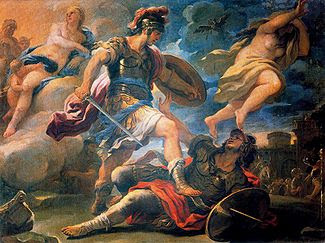So... I've sorta been down for the count for the past week. I mean, I certainly haven't missed any classes, but other than that... Schoolwork has pretty much been about the bare minimum. Tragically, this poor blog has suffered. :(
Truly, I feel terrible about that. This blog is fun! It's entertaining. I get to read what everyone else is up to and that never fails to brighten my day. (Thank you) But I caught an illness of what I'm going to call mythical proportions and it briefly took over my life.
And that brings me to the point of this blog entry. Anthropomorphism. Not just a key vocabulary word for tomorrow's quiz, anthropomorphism is a fascinating phenomenon in everyday life. Just look at germs. Do we say, "Oh, I came in contact with a virus and proceeded to feel quite poorly while my body counteracted it?" Of course not. We talk about "catching" things, "fighting" them, having our lives "taken over" by them. And that's not the best part. The best part is the drugs.
Let me tell you something. I
love Nyquil.
Seriously. All this talk of gods and goddesses combined with my recent illness makes me seriously want to write a myth in which the personification of Nyquil rules the world. (Lucky for you all, I'm not much of a writer.) But it's that awesome.
So as I sat here, mulling over lists of vocab and key concepts and generally panicking at the thought of tomorrow's quiz, I found my mind wandering and decided to google "Nyquil". Here are a couple of gems that popped up:
It's magic! Nectar of the gods? Morpheus, perhaps? It certainly makes a body see things...
Oh yeah. It's that powerful. Entirely worthy of godhood.
Just for the record, I am
not a drug addict. I was simply struck by the way in which so many people (myself included) can take the concept of a scientific medicine and resort to mythic vocabulary to describe it. This is certainly not because we don't know the truth, but because our description is so much more interesting.
And that's the gist of anthropomorphism. In the end, bland definitions may get the job done but there's no denying that life is simply better in color 3-D with surround sound. :)









